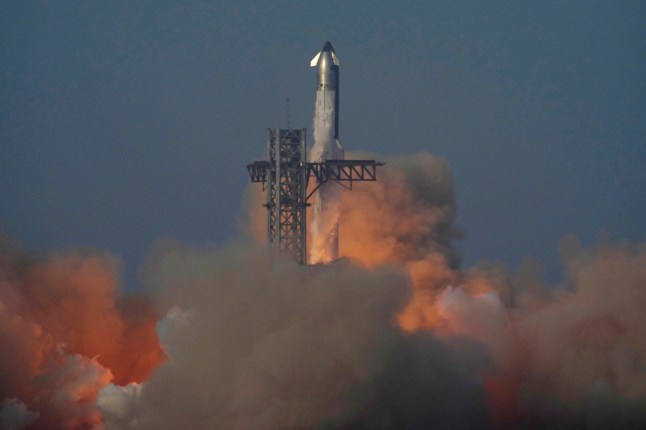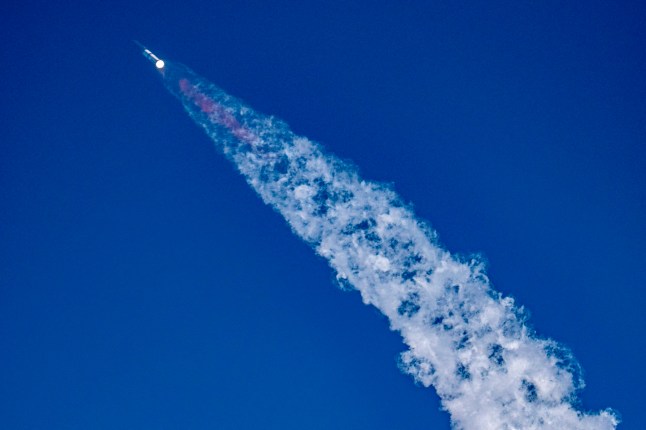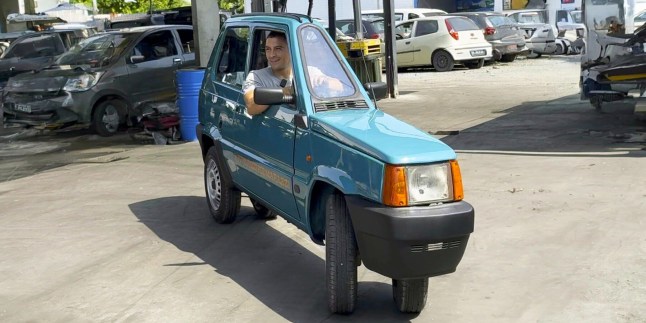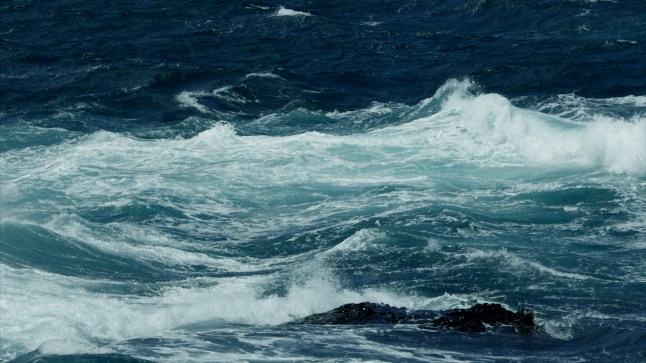To view this video please enable JavaScript, and consider upgrading to a web
browser that
supports HTML5
video
The world’s most powerful rocket has had yet another setback after tumbling out of control and breaking apart last night.
After back-to-back explosions, SpaceX launched Starship again hoping to release a series of mock satellites.
But it began spinning as it skimmed space, towards an uncontrolled landing in the sea, and the payload could not be released because the door failed to open all the way.
The company’s boss Elon Musk said it was still a ‘big improvement’ on the last launches, which ended with flaming debris raining down over the Atlantic.
The 403-foot rocket blasted off on its ninth demo from Starbase, SpaceX‘s launch site in Texas which residents voted this month to organise as an official city.
SpaceX later confirmed that the spacecraft experienced ‘a rapid unscheduled disassembly’, AKA it burst apart.

‘Teams will continue to review data and work toward our next flight test,’ the company said in an online statement.
Despite the setback, Mr Musk promised a faster pace of launches moving forward, with a Starship lifting off every three to four weeks for the next three flights.
The powerful rockets are a key part of Nasa’s plans to return humans to the Moon this decade, as well as potentially get to Mars after that.
Next year’s moonshot with four astronauts will fly around the moon, but will not land. That will happen in 2027 at the earliest and require a Starship to get two astronauts from lunar orbit to the surface and back off again.
Yesterday’s launch was the first time one of the Starships flew with a recycled booster.
There were no plans to catch the booster with giant chopsticks back at the launch pad this time, with the company instead pushing it to its limits.
Contact with the booster was lost at one point, and it slammed into the Gulf of Mexico in pieces as the spacecraft continued towards the Indian Ocean. Then the spacecraft went out of control, apparently due to fuel leaks.

‘Not looking great with a lot of our on-orbit objectives for today,’ said SpaceX flight commentator Dan Huot.
The company had been looking to test the spacecraft’s heat shield during a controlled re-entry.
Communication ceased before the spacecraft came down, and SpaceX ended its webcast soon afterwards.
In the last two demos this year, the rockets never made it past the Caribbean and the tests ended just minutes after liftoff, raining wreckage into the ocean and disrupting airline travel, though no injuries or serious damage were reported.
The Federal Aviation Administration last week cleared Starship for another flight, expanding the hazard area and pushing the liftoff outside peak air travel times.
This one was meant to sink in the Indian Ocean, but the company wanted to test the add-ons for capturing future versions back at the pad, just like the boosters.
Get in touch with our news team by emailing us at webnews@metro.co.uk.
For more stories like this, check our news page.


